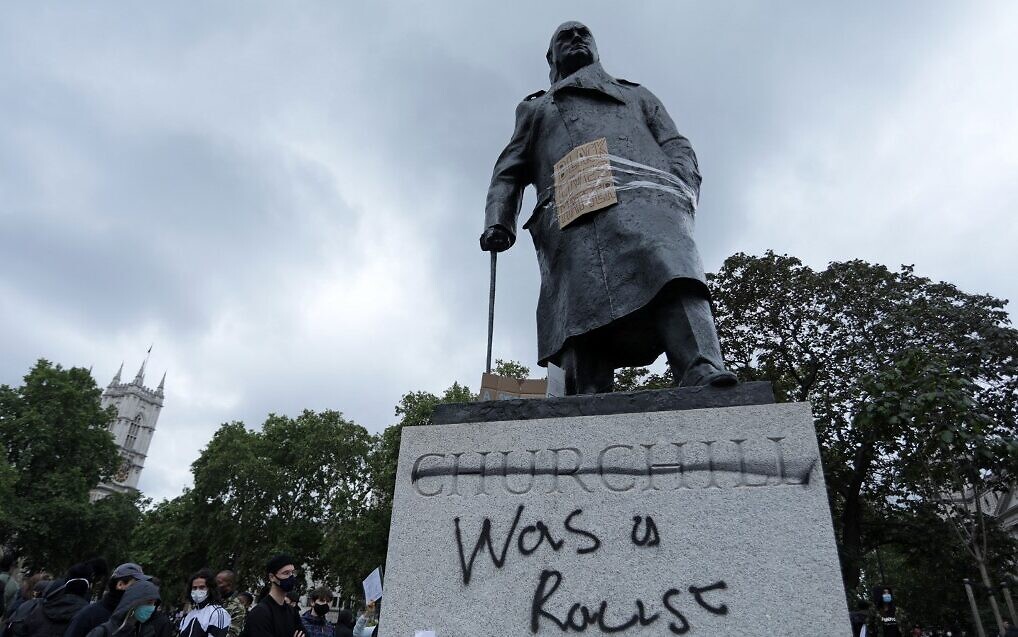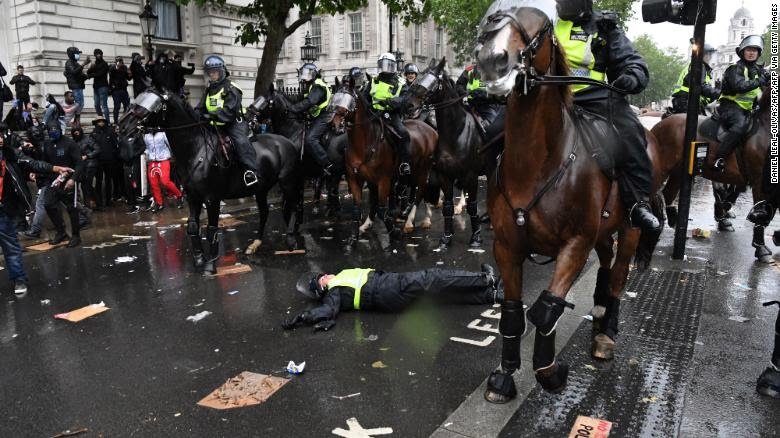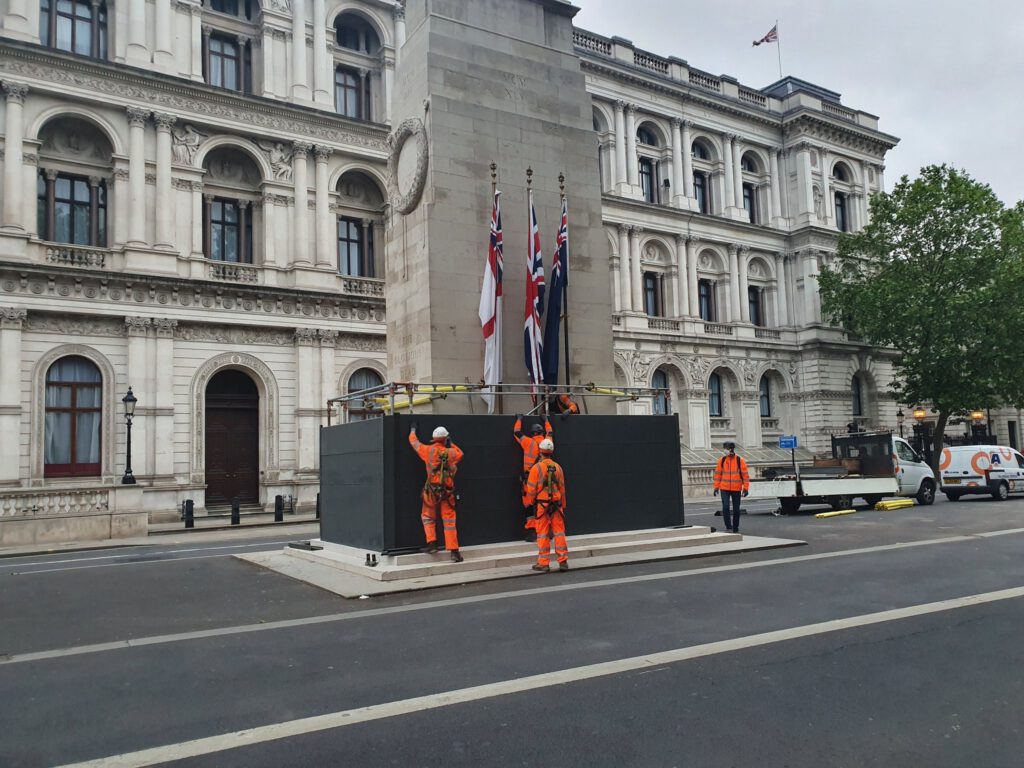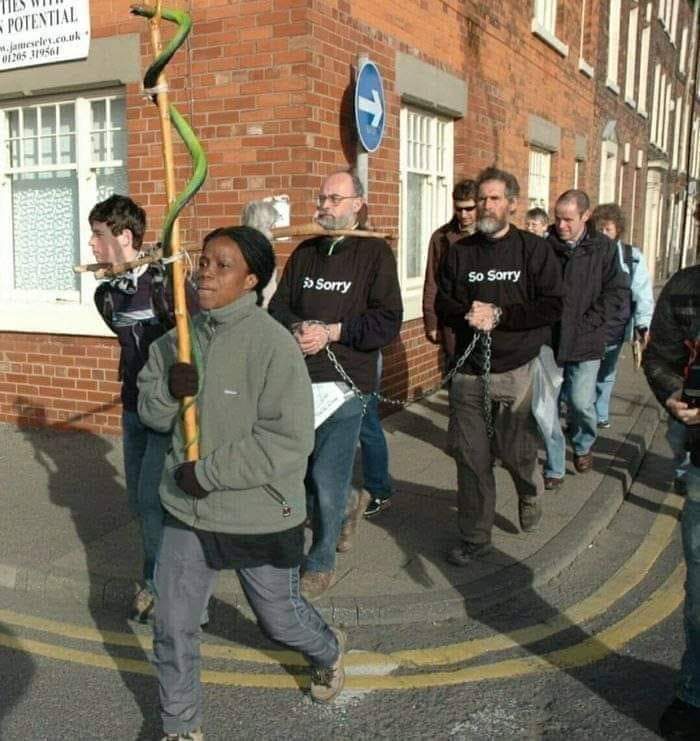| The Conservative Party is no longer the party of the rich while the Labour Party is no longer the party of the poor. That is the central finding of my new report for the Joseph Rowntree Foundation, released last week. As I said in a talk this week, there is no doubt that Boris Johnson is a prime minister under pressure. Public disapproval of his government is drifting upwards. Public confidence in the economy has collapsed. Johnson’s approval ratings have shed more than 20 points in just two months. MPs are openly complaining about the workings of his government. And, for the first time, when voters are asked who they think would make the ‘best Prime Minister’, Labour’s Keir Starmer is now in first place. In fact, as I write this Starmer is enjoying the highest rating for any opposition leader since Tony Blair was transforming Labour into New Labour in 1995 and (What’s the Story) Morning Glory was topping the charts. But look beneath the surface of British politics and far more profound changes are taking place -changes that will ultimately determine not only what happens at the next election but, potentially, many elections after what. Britain is in a state of realignment. As I shown with Professor Oliver Heath, things are now happening in Britain which have simply never happened before. The Conservative Party is more popular with people on low incomes than it is with people on high incomes. Labour, the party that was founded to speak for struggling workers, is now just as popular with the wealthy as it is among people on low incomes. Both of Britain’s two main parties have inverted their traditional support base. This is, put simply, remarkable. As recently as 2017, Labour still led the Conservatives among people on lower incomes -as it has always done. But at the general election six months ago Boris Johnson and his party overturned this unwritten rule. The Conservatives established a striking 15-point lead over Labour among one of Labour’s core groups. This is the first time in Britain’s recorded history that the Conservatives outpolled Labour among low-income voters. Remarkably, the Conservatives are more popular among people on low incomes than among people on high incomes. Much of this new support for Boris Johnson has come direct from Labour, which is why Johnson was able to tear down Labour’s Red Wall. Six months ago, Labour lost nearly one in three of its low-income voters who had turned out to vote Labour in 2017. Meanwhile, Johnson and his party hoovered up votes from working-class people, pensioners and people who left school after taking their GCSE’s, at sixteen or seventeen, while they lost ground in areas that contain large numbers of young voters, graduates and people from minority ethnic backgrounds. Johnson has been winning over the small towns and industrial heartlands but he has also been losing the cities, university towns and highly diverse areas; of Labour’s 50 strongest results in December nearly half (22) came in London while highly diverse and/or young urban areas such as Bradford, Birmingham, Manchester and Sheffield hosted many of the others. And these shifts are reflected in the polls today. Ask Brits who would make the best leader and Starmer leads Johnson by a striking 44-points among Remainers, 24-points among 18-34-year-olds, 19-points among Londoners, 12-points among people who live in cities and 3-points among middle-class professionals. But Johnson leads Starmer by 46-points among Leavers, 19-points among pensioners, 10-points among the working-class, 6-points in non-London southern England, 5-points among voters who live in seats that Labour has lost since 2005, 5-points in rural areas and 2-points in towns. What these numbers reflect is how broader winds are sweeping through Britain’s political system and pushing it into a state of realignment. Why is this happening? As we show in the report, the reality is that lots of people who live on average or lower than average incomes are ‘cross-pressured’ -they lean to the left on the economy, favouring more redistribution, but lean to the right on culture, supporting Brexit and the reform of migration. These voters want power sent down to the regions, not up to London and the big cities. And, by the way, they wanted a much tougher reply to the unilateral tearing down of statues. They do not fit neatly onto the traditional map of British politics. Johnson tapped into this by leaning left through promises to deliver more infrastructure and help the ‘left behind’ while promising to deliver Brexit and change immigration rules. Labour, in contrast, went in the other direction. As we show in the report, Labour’s drift to support a second referendum on Brexit damaged the party among these low-income voters who noticed the shift. This handed Johnson the keys to the Red Wall. Most of those who switched to him were strongly pro-Brexit and wanted to see their decision carried through and implemented by their representatives. Johnson also had another in-built advantage – more than 60 per cent of constituencies had favoured Leave at the 2016 referendum. So long as Johnson’s strategy was focused on consolidating the Leave side he had a major advantage. This was further underlined by the failure of Remainers to find unity, being split between Labour, the Liberal Democrats and the Greens. So, where do we go from here? Johnson needs to tread carefully, for obvious reasons. Many of the same people who switched over to him six months ago also come from those groups that have been hit the hardest by the double crisis that Johnson has struggled to manage -the Covid-19 health crisis and the accompanying economic crisis. There is not yet much evidence that they are jumping ship. Perhaps they are willing to give Johnson benefit of the doubt until the end of the Brexit transition period. Either way, it is not hard to see how things could start to go very wrong for the incumbent prime minister. Immigration numbers are still high and there is also no guarantee that amid a major economic crisis these voters will continue to prioritise their values over their wallets. Nothing focuses minds like lost jobs and rising debt. Keir Starmer has challenges, too. Winning adulation in London and the university towns -or ‘Remainia’- is fine. But Labour already holds much of this territory. To return to power, and given the SNP’s dominance in Scotland, Starmer also needs to make serious progress in non-London England -where lots of voters are instinctively socially conservative and wary of the new turn toward identity politics. It is worth remembering that the Labour Party has not won the popular vote in England since 2001. Let me say that again – by the time of the next election Labour will not have won the popular vote in England for more than twenty years. So, there are also huge challenges for Starmer’s team. Blair managed to crack this nut by promising to be ‘tough on crime and tough on the causes of crime’ -he hoovered up the professional middle-classes while giving the more instinctively socially conservative working-class a message that resonated. But that was also before the values-ridden debates of today -with debates over migration, Brexit, gender, statues, the legacy of empire and who-knows-what-is-next shooting up the agenda. Starmer will need to find his own way of navigating our values divide. But find a way he must if he is serious about winning the next election. So, is Britain’s realignment temporary or permanent? Can Boris Johnson retain his support in the Red Wall? Or can Labour repair their relationship with these low-income, blue-collar and cross-pressured voters? Only time will tell. And for Johnson, especially, the clock is ticking … Matthew Goodwin – Twitter – Website – Speaking Subscribe to this mailing list |
| Copyright © *2019* *Matthew J. Goodwin*, All rights reserved. |
Archive for juin, 2020
The Realignment of British Politics – by Matthew Goodwin
lundi, juin 29th, 2020The Black Lives Matter Movement & Racism
vendredi, juin 12th, 2020The death of black male George Floyd on May 25th at the hands of a white male police officer, Derek Chauvin, in the United States has led to worldwide protests about police brutality and apparent systemic racism against Black, Asian and Minority Ethnic groups (BAME) in Western civilization.
This is because, of course, as the Left would tell you, in the US they have ‘White Supremist’ Donald Trump as their president and in Britain the fault lies with ‘Mr Brexit’ and ‘Chief Gammon’ himself, Boris Johnson and his army of little Englanders – the Conservatives who are in power.
All of this despite the fact that Mr Chauvin has been arrested and charged with second and third-degree murder.
Consequently however, it seems that all white people are guilty of unconscious bias against the BAME community; a result of their ingrained ‘white privilege.’
This simplistic narrative has, of course, been dreamt up by an ever delusional Left that still hasn’t learned how to console itself over Brexit, and Donald Trump’s and Boris Johnson’s election victories. It further demonstrates an ever-increasing chasm between their neo-Marxist ideology and the people they purport to represent. In fact the whole #BlackLivesMatter movement is making idiots out of many people.
The Labour leader, Sir Keir Starmer, and his deputy took to their knee in solidarity with the #BlackLivesMatter movement, tweeting “We kneel with those opposing anti-Black racism.” Why kneel? We used to stand up to injustice and cruelty and stand alongside people in our battles.
We’ve also seen white people being chained up like slaves whilst wearing “So sorry” T-shirts and being marched through the streets by black people on some sort of slave parade. Additionally, graffiti was sprayed on to Winston Churchill’s statue in London, claiming ‘Churchill was a racist’; the London Mayor, Sadiq Khan, even tweeted, ‘The sad truth is that much of our wealth was derived from the slave trade…’
All of this completely ignoring the history of the slave trade, and the fact that it was in the Christian West that slavery was first outlawed.
It is fair to say, though, that racism does exist in western civilization. However, it simply is not systemic and it is not always directed from the white majority towards the non-white minority. It is a far more complex issue.
Sadly, we still have antisemitism, and there has been an increase in Sinophobia as a result of Covid-19. There is also very clear anti-white racism.
Yes, in the ever gracious virtue signaling of the Left, they can’t see the irony of their own creed. For it is the Left that promotes the terms ‘white supremacy’ and ‘white privilege’, fundamentally highlighting that it is being white that is the problem.
This is racism, plain and simple.
Furthermore, last year the term ‘gammon’ was used to describe white, middle-aged men. So now not only are the Left racist, they are ageist as well.
If this is inclusion, please allow me to be excused.
On occasion it’s important to try to understand this lunacy; to see if it stands up to scrutiny and logic.
What is ‘white privilege’ one may ask? Is it a privilege to be born in white skin as opposed to non-white? Does being white mean that one can access the labour market more easily? Given the anti-discrimination laws in the UK, these arguments defy logic.
One further argument goes that being white means that one hasn’t had to cope with regular racial harassment or had to overcome additional challenges in society. Therefore, as a white person, one can’t sympathize with these kinds of difficulties a non-white person has had to grapple with and overcome.
However, saying that a white person can’t empathise with the issues of a non-white person is like saying they can’t be human. It’s no different than saying Sadiq Khan couldn’t empathise with Steve Jobs when he was dying of cancer. Or a Prime Minister couldn’t empathise with a school teacher. Or a Human Rights lawyer couldn’t empathise with a drugs dealer.
Coupled with this is the negative effect the rhetoric could have on non-white people, discouraging them from believing that they can achieve great things if they set their mind to it and work hard. Why would they want to try, if they are taught from a young age that the cards are systemically stacked against them? Despite the fact that this ignores the numerous occasions when black people, or people of any race for that matter, have come from a poor background in the western world and made a success of their lives.
No. The ideas of ‘while privilege’ and ‘white supremacy’ are a leftwing mantra slightly adapted from terminology employed by Karl Marx who basically portrayed bourgeois bosses as slave keepers over workers. The new terminology has been deliberately constructed to create the same divisions in society with a supposedly utopian vision of the future as its goal.
Society is not always fair. We are taught this from a young age and all religions teach it in a similar way. But society is not fundamentally cruel even though modern mantras portray it as such. The slogans of ‘white supremacy’ and ‘white privilege’ spread envy and hate. History taught us where this ends at least twice in the last century with the Nazi concentration camps and the Soviet gulags.
If we stopped this identity politics and had real deep and meaningful conversations about the problems our society face we would go a long way towards finding greater harmony in an often difficult world.




Andrew Crawford
The Stationers’ Company – more on the role of tradition and ceremony, plus the ‘wicked bible’ and copyright.
jeudi, juin 11th, 2020The Cakes and Ale ceremony is an annual event, a luncheon that takes place at the Stationers’ Hall preceded by a Bidding Prayer and Sermon at St Pauls Cathedral every Shrove Tuesday following the bequest made in 1612 of John Norton, Alderman of London, Master of the Stationers’ Company. Stationers file out of the Hall after coffee at 10.45, the Master, Clerk and the Court Assistants first, followed by the Liverymen then the Freemen, for the short walk along Ave Maria Lane, across Paternoster Square under the watchful eye of a modern (Elizabeth Frink, 1975) bronze statue with the same title of Paternoster, but also known as shepherd with a flock of sheep, and down the steps to the crypt of the Cathedral, past the tombs of the Duke of Wellington and Admiral Lord ‘Horatio’ Nelson, into the Chapel of St Faith-under St Paul’s. Organ music by William Byrd 1543-1623 welcomes the arriving congregation to commemorate John Norton commencing at 11.15, the Bidding this year given by the Dean of St Paul’s and the Sermon by the Vicar of St Martin-in-the-Fields. At 12.15 the procession emerges from the crypt led by the Court dressed in their livery attracting a crowd of on-lookers and on their return this pious assembly with guests enjoy a buffet lunch with pancakes and cakes for dessert (more wine than ale), preceded as always by a witty version of grace by the Company’s Clerk, William Alden. The Clerk, rather like a CEO, is responsible for the day to day running of Stationers’ that includes the organising of fundraising including charities, participating in and organising the many committees and renting out the Hall for drinks parties, events, lunches and dinners. Aloft as a central feature of the ceiling is a spread eagle and horn in gold and blue, symbols of St John the Evangelist looking down on the Cakes and Ale party, this symbol often appearing of the Saint as it was the bird which could fly highest therefore closest to heaven. At the southern end of the hall, carved in white and gold on the dark oak of the minstrels gallery, are open tomes of the King James’ Bible, reminding us that it was at Stationers Hall that this sacred work was translated by William Tyndale from Latin and edited and read out loud here by the Translating Committee.
In 1608 the Master of Stationers, Robert Barker who was also the King’s printer and therefore tasked with printing the King James Bible, left out ‘not’ from the seventh commandment, “thou shalt not commit adultery”, was fined £2000 and never recovered his health nor fortune, dying in the debtors prison. Copies of the ‘wicked bible ‘ were seized and burned in the Hall’s courtyard also the former churchyard of St Martin-within-Ludgate, on the site of which now stands a 200 year old plain tree, renowned for its resilience to London pollution of which there was plenty with the burning of coal fires. It not only survived the decades of smoke from coal burning but also the fire and shrapnel of the Blitz, as did Wren’s St Martin’s church and the Hall. It is said that eleven copies of the wicked bible survived and that the Hoho (Chinese Fenghuang) bird carved out on the fireplace provented the destruction of the Hall.
It was on account of the development of printing to publishing that it was considered necessary to protect society against abuses of the press, and this was enforced by ordinances and Acts of Parliament that also protected authors and publishers against infringement of their rights. The Licensing Act of 1662 was the successor to the Star Chamber decree of 1637 that forbade the publication of books without a licence and these protectionist clauses suited the trade and the Company with a requirement of a copy of every book to be deposited at Stationers’ Hall. The first law relating to copyright was the Copyright Act of Queen Anne of 1710, where infringements could be brought only for titles which had been entered in the Register of the Stationers Company, hence the term ‘entered at Stationers’ Hall’ is synonymous with copyright. It followed that penalties could be incurred by the printer on those books that were deposited, however canny printers only paid to register when they sought copyright protection, so little revenue for the Stationers. One loophole was only to register the first volume of say a series of 12, whilst learned works from universities were not entered because of the procedure and cost. Best sellers were protected and paid for since they would be more likely to attract piratical publication and contributed considerably to the fortunes of the English Stock, a company set up under James 1 that gave the Company a monopoly over certain types of publications in addition to the powerful printing privileges it had acquired through the 1557 Charter granted by Queen Mary. Shakespeare, Marlowe and others appear in the records.
Order and clarity came in 1836 and in 1838 with the international Copyright Act that gave protection to foreign works and British authors published in foreign countries, provided that their works were registered at Stationers’ Hall and one copy sent to the British Museum. The main use of the registry was a means of transferring copyright from author to publisher or publisher to publisher through a simple form of assignment at negligible cost. The proceedings improved after a Commission and the appointment of the Greenhills, London booksellers with a tradition of being Stationers, father George succeeded by son Joseph, a dynasty that lasted from 1797 to 1883. Joseph Greenhill also looked after the purchasing of the wine with an informal team of juniors for ‘blind tastings’ and only he knew which wines were kept and from whom. His stock last recorded in dozens was, 410 of port, 32 of Madeira, 11 of claret, 15 of Moselle, 110 of sherry and two of champagne. On his demise he was succeeded by a Wine Committee.
In our next edition we shall read about the British tradition for almanacs and astrological predictions that produced annual revenue for the Stationers.
Rafael Pittman


